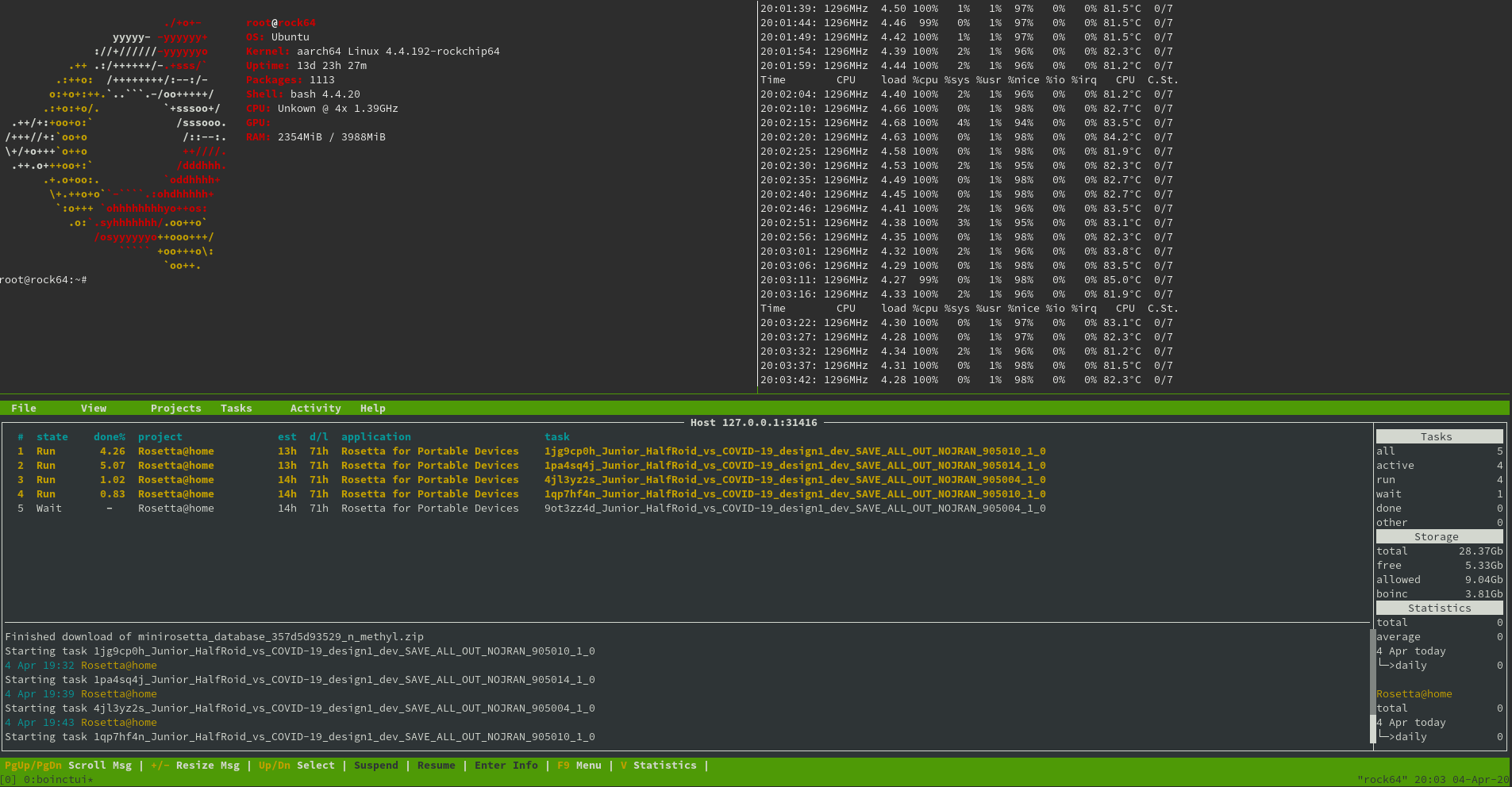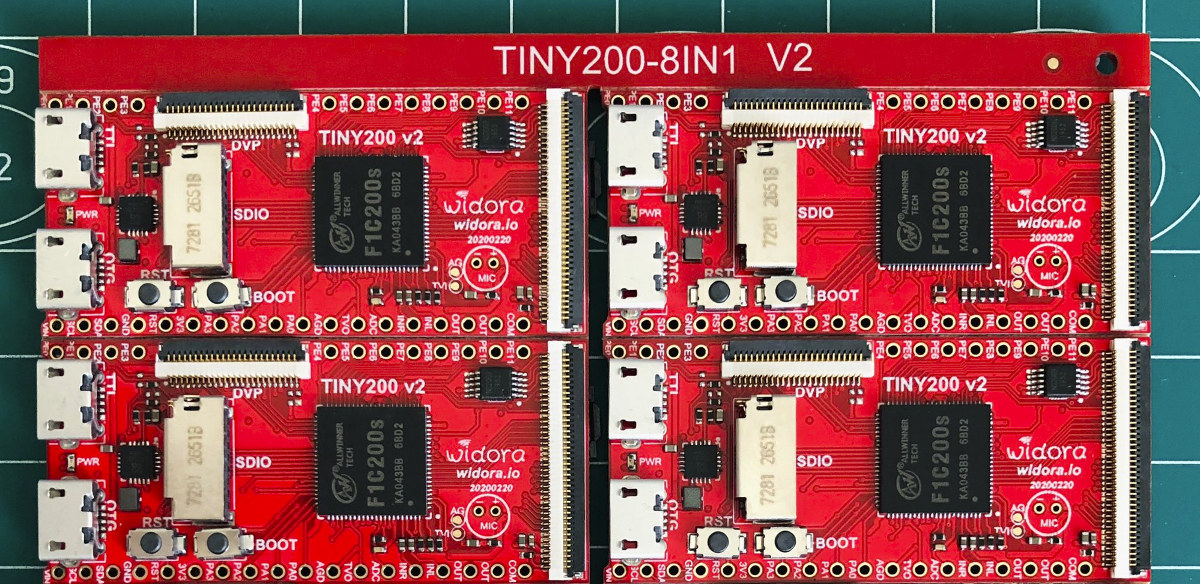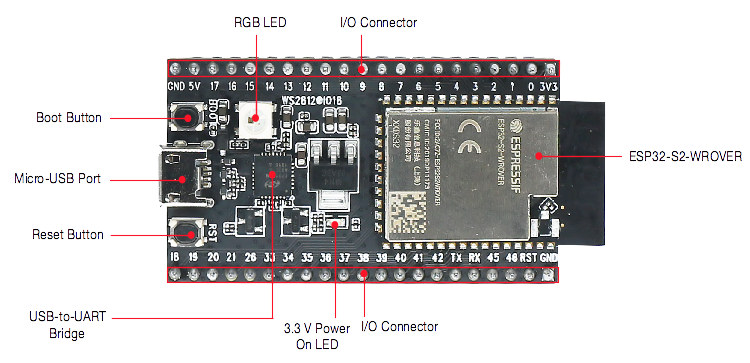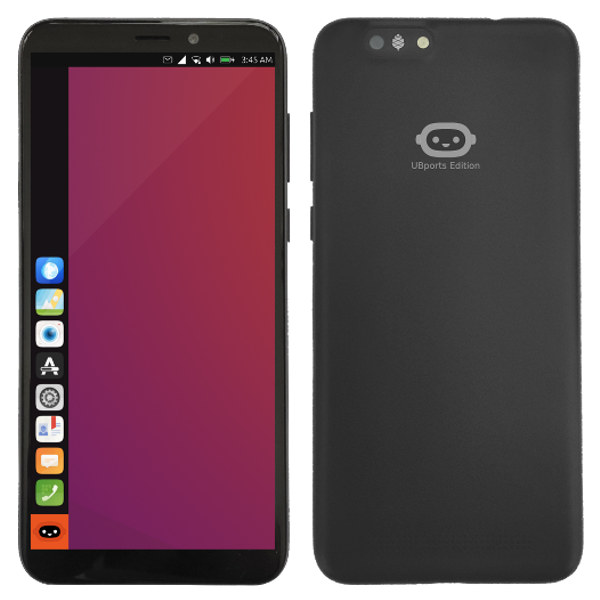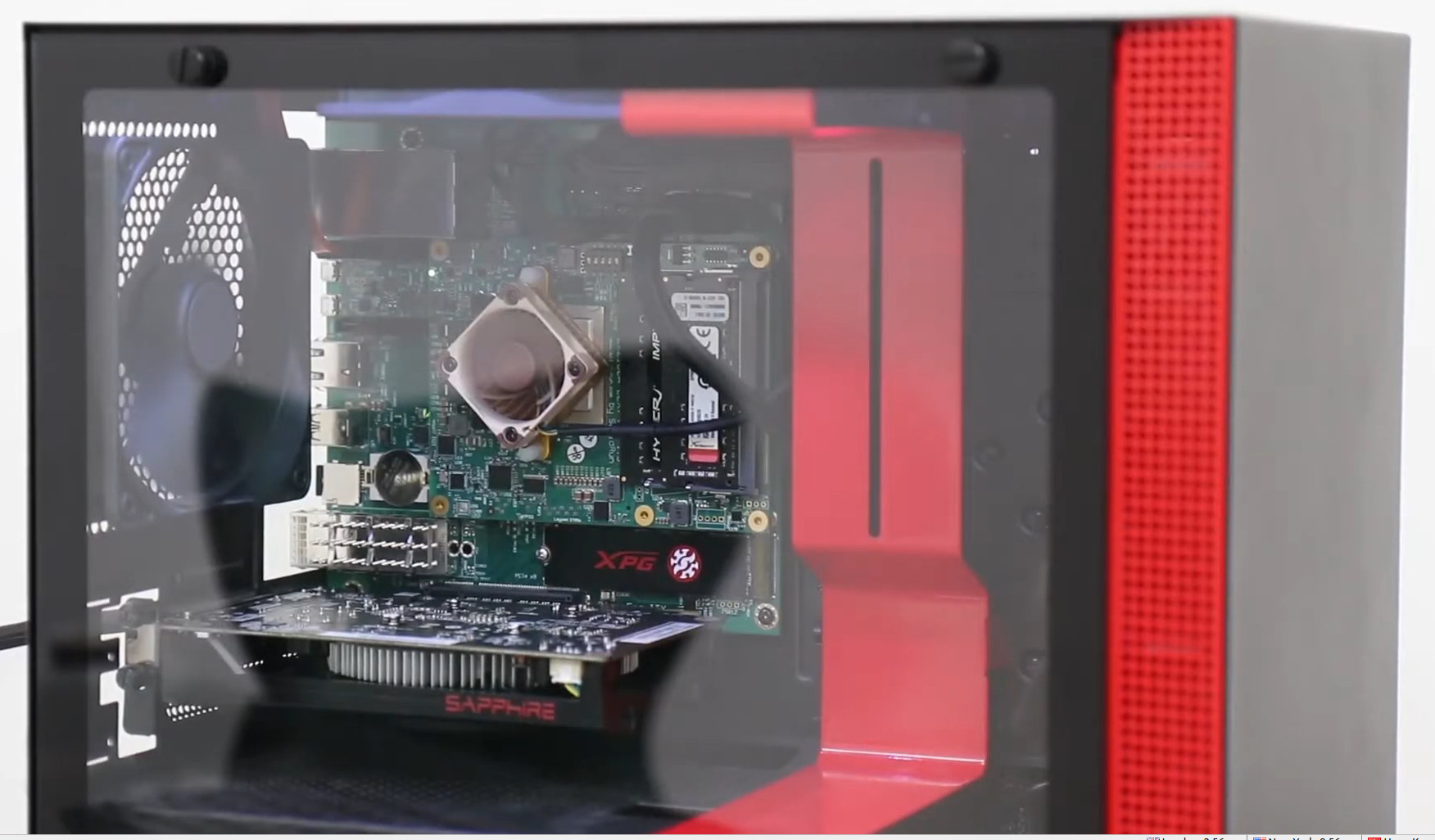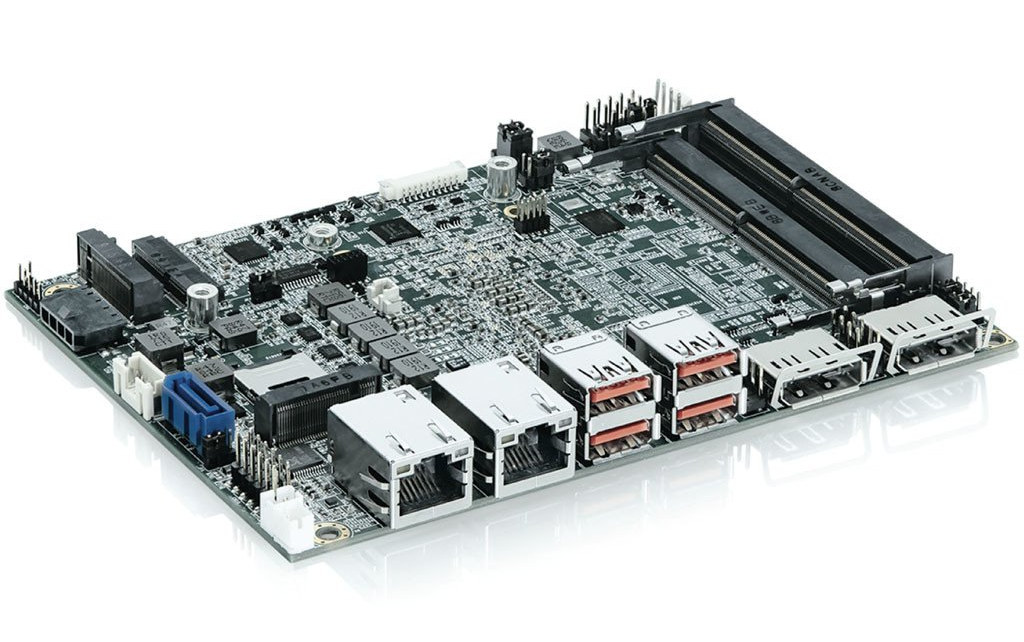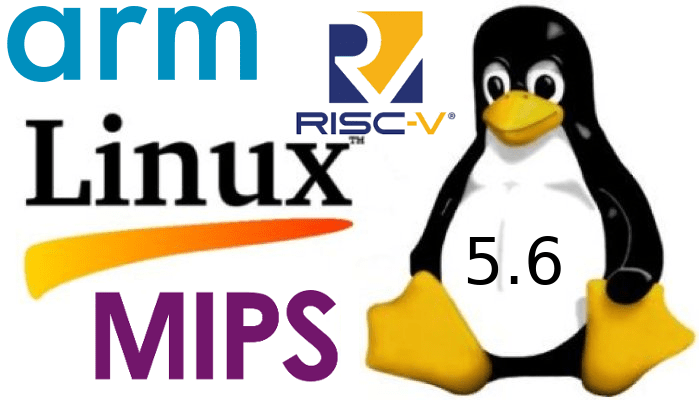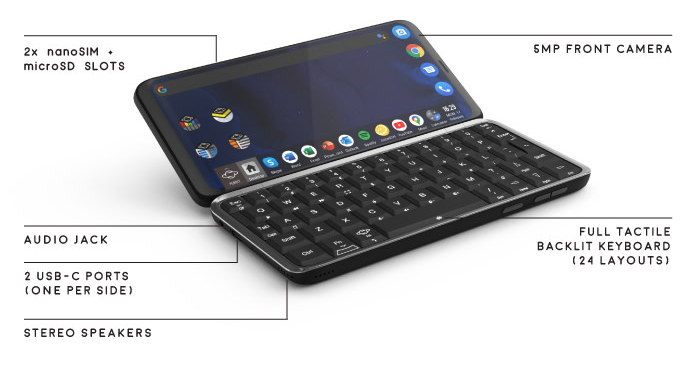Folding@Home and Rosetta@Home projects aim to perform biomedical research using the computing power of volunteers. Basically, you just need to install a program on your computer, and it will use idle computing power to perform complex calculations without slowing down your computer as long as you are not short in RAM. The projects are now working on COVID-19 to understand how SARS-CoV-2 protein is structured which could help find a cure. The programs have been available for Windows, Linux and Mac OS on 32-bit and 64-bit x86 targets for years, but very recently Rosetta@Home has been made available for 64-bit ARM targets so people can also run BOINC program on Arm Linux SBCs such as Raspberry Pi 4, NVIDIA Jetson Nano, or Rock64, or even powerful Arm servers to help with Rosetta@Home project’s COVID-19 research. As explained in an article on miniNodes, you’ll need a board with at least 2GB […]
Widora TINY200 Allwinner F1C200s ARM9 Development Board Supports DVP Camera, Up to 512MB SD NAND Flash
Widora TINY200 is a tiny ARM9 development board equipped with Allwinner F1C200s with a DVP camera interface compatible with OV2640 / 5640 sensor, an audio amplifier, and various storage options from a 16MB SPI flash to a 512MB SD NAND flash. I first heard about the processor when I wrote about Microchip SAM9X60 ARM9 SoC last month, and some people noted there were other fairly new ARM9 SoCs around such as Allwinner F1C200s that also includes 64MB RAM so you can run Linux without having to connect external memory chips. Widora TINY200 V2 specifications: SoC – Allwinner F1C200s ARM926EJS processor @ 400-600 MHz (Overclockable to 900 MHz) with 64MB DDR1 RAM Storage – 16MB SPI NOR flash or 128MB NAND flash and MicroSD card slot or 512MB SD NAND flash. Display I/F – 40-pin RGB FPC cable for resistive touch screens; additional 6-pin FPC cable for capacitive touch support Camera […]
ESP32-S2-Saola-1 Development Board is Now Available for $8
Espressif ESP32-S2 WiFi SoC mass production started at the end of February 2020, and soon enough we started to find ESP32-S2 SoC and modules for $1 to $2 on sites like Digikey, but so far we had not seen ESP32-S2 development boards for sale. The good news is the breadboard-friendly ESP32-S2-Saola-1 development board has started to show up for $8 on resellers such as Mouser and Digikey albeit with a lead time of 8 to 12 weeks. ESP32-S2-Saola-1 specifications: Supported modules – ESP32-S2-WROOM(-I) & ESP32-S2-WROVER(-I) with 4 MB SPI flash and for ESP32-S2-WROVER modules only, 2 MB PSRAM USB – 1x Micro USB port for power and programming / debugging via USB-to-UART bridge Expansion – 2x 20-pin I/O headers with SPI, I2S, UART, I2C, touch sensors, PWM, etc… Misc – Boot and reset buttons, RGB LED, 3.3V power on LED Power Supply (3 methods) 5V via Micro USB port (default) […]
PinePhone “Community Edition: UBports” Linux Phone Launched with Ubuntu Touch
PinePhone “BraveHeat” Limited Edition Linux smartphone launched last November as promised for $149.99. As the codename implied, it was for the enthusiasts as the phones that were part of that product batch may have had some defects, and came without an operating system, meaning the users had to flash the firmware themselves. But there’s now a new edition, namely PinePhone “Community Edition: UBports” pre-loaded with UBports with Ubuntu Touch featuring Lomiri user interface. The specifications are exactly the same with an Allwinner A64 quad-core Cortex-A53 processor, 2GB RAM, 16GB eMMC flash, a 5.95″ display with 1440×720 resolution, and 4G LTE cellular connectivity. The only difference is that Ubuntu Touch is preloaded to the device, and the back of the phone should have a marking showing you purchased UBports Edition. What should be noted is that it’s still not considered as a consumer device, as UBports is still beta, and the […]
This is what HoneyComb LX2K 16-core Arm Workstation Looks Like (Video)
Back in February 2019, while referring to Arm server, Linus Torvalds famously said: I can pretty much guarantee that as long as everybody does cross-development, the platform won’t be all that stable. Or successful. … If you develop on x86, then you’re going to want to deploy on x86, because you’ll be able to run what you test “at home” (and by “at home” I don’t mean literally in your home, but in your work environment). … Which in turn means that cloud providers will end up making more money from their x86 side, which means that they’ll prioritize it, and any ARM offerings will be secondary and probably relegated to the mindless dregs (maybe front-end, maybe just static html, that kind of stuff). SolidRun had already worked on products with NXP LX2160A 16-core Arm Cortex A72 processor and found out it could be a match to make a powerful […]
Kontron 3.5″-SBC-WLU Single Board Computer Takes CNVi M.2 WiFi Cards
We first found out about Intel CNVi (Connectivity Integration Architecture) for WiFi in a block diagram for Gemini Lake processors in 2017. CNVi integrates a WiFi MAC, Bluetooth MAC, and Baseband Modem into the processor, and connect over a CNVio interface to a separate CRF (Companion RF) module handling the RF part. This allows overall cost & power savings and reduction in size. AFAIK, all new Intel desktop and mobile processors come with a CNVi block, but somehow only a few SBC’s are made with M.2 slot compliant with CNVi WiFi cards. But Kontron 3.5″-SBC-WLU single board computer powered by an Intel Whiskey Lake processor is one of those and features an M.2 E-key slot that supports Intel Integrated Connectivity (CNVi) WiFi & Bluetooth modules. Kontron 3.5″-SBC-WLU specifications: SoC (one or the other) Intel Core i7-8665UE quad-core processor @ up to 4.4 GHz with 8MB cache, Intel UHD Graphics 620; […]
Linux 5.6 Release – Main Changes, Arm, MIPS & RISC-V Architectures
Linus Torvalds has just announced the release of Linux 5.6 on the Linux Kernel Mailing List: So I’ll admit to vacillating between doing this 5.6 release and doing another -rc. This has a bit more changes than I’d like, but they are mostly from davem’s networking fixes pulls, and David feels comfy with them. And I looked over the diff, and none of it looks scary. It’s just slightly more than I’d have preferred at this stage – not doesn’t really seem worth delaying a release over. So about half the diff from the final week is network driver fixlets, and some minor core networking fixes. Another 20% is tooling – mostly bpf and netfilter selftests (but also some perf work). The rest is “misc” – mostly random drivers (gpio, rdma, input) and DTS files. With a smattering of fixes elsewhere (a couple of afs fixes, some vm fixes, etc). […]
Astro Slide 5G Transformer Smartphone Comes with a Slide-out Keyboard, MediaTek Dimensity 1000 SoC (Crowdfunding)
Planet Computers has introduced several smartphones with physical keyboards over the last few years including Gemini PDA and Cosmo Communicator with the later recently received its promised Debian Linux images besides just running Android 9.0. The company is now back with the new model. Powered by a MediaTek Dimensity 1000 processor, Astro Slide 5G Transformer supports 5G connectivity and comes with a slide-out keyboard following on the steps of the company’s previous smartphones. Astro Slide 5G Transformer preliminary hardware specifications: SoC- MediaTek Dimensity 1000 (MT6889)octa-core processor with 4x Arm Cortex-A77 cores @ 2.6 GHz, 4x Arm Cortex-A55 CPU efficient cores @ 2.0 GHz, Arm Mali-G77 GPU, 4.5 TOPS APU 3.0 AI accelerator / NPU System Memory – At least 6GB LPDD4x RAM Storage – 128 GB flash, MicroSD card slot Display – 6.53″ touchscreen display with 2340×1080 resolution, scratch-resistant glass Camera – 48MP rear camera with flash, 5.0MP front-facing camera […]


